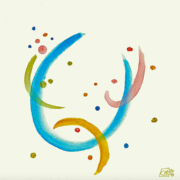Introduction “Roman days of multi family psychoanalysis”
Presenting the work on multi-family psychoanalysis exposed during the Roman Days of Multi-Family Psychoanalysis is a source of great joy and pride. It’s been a while since a small group of mental health workers decided to organize three days of perer confrontation and exchange with professionals from different places in the world.
Andrea Narracci, Claudia Tardugno, Federico Russo, Luciana De Franco and Fiorella Ceppi Read more

